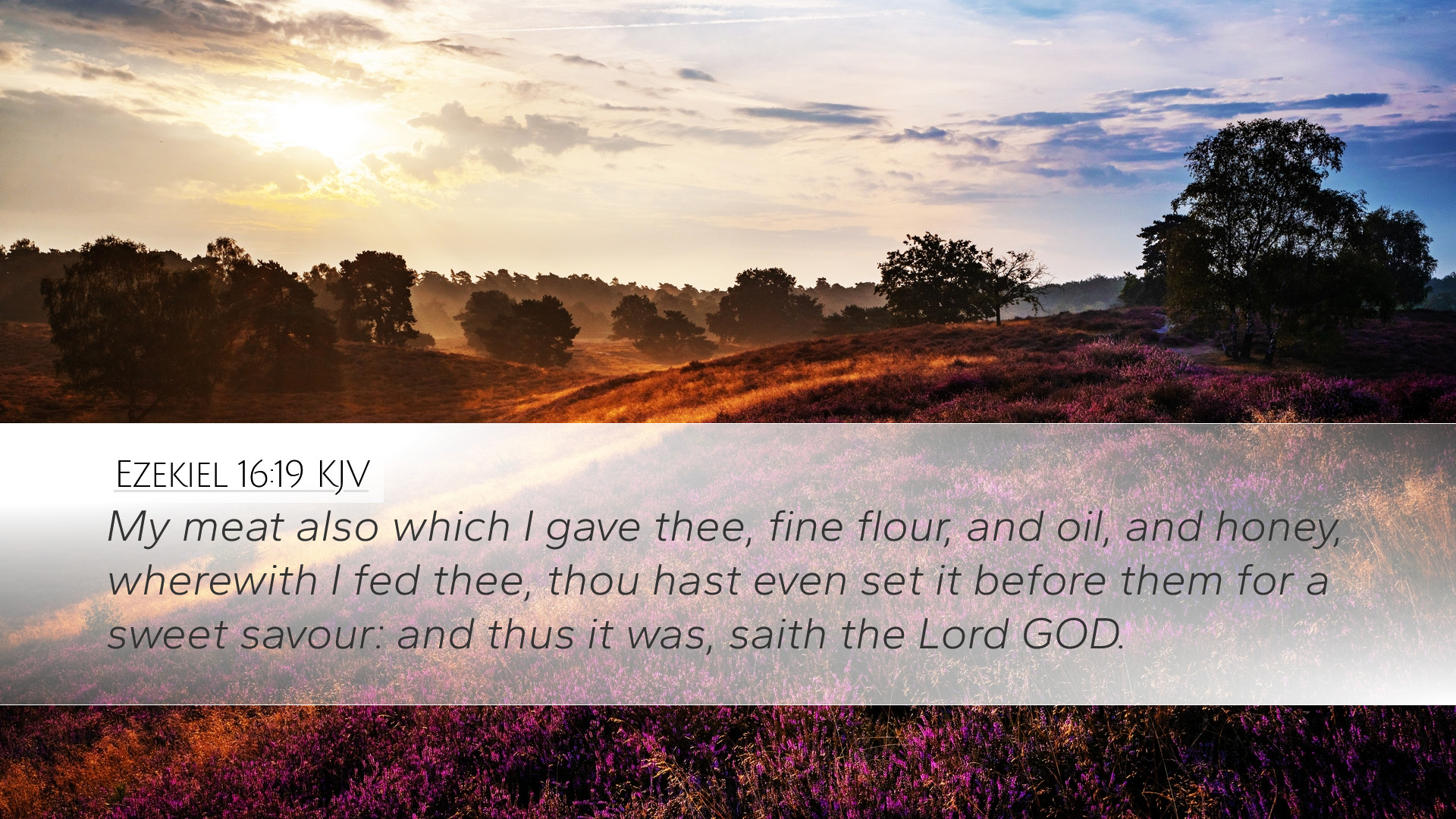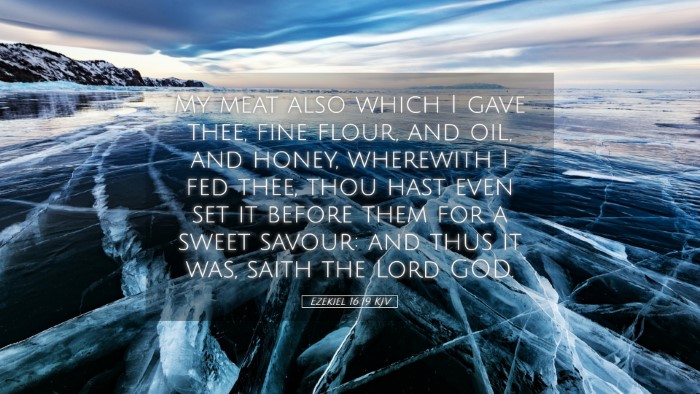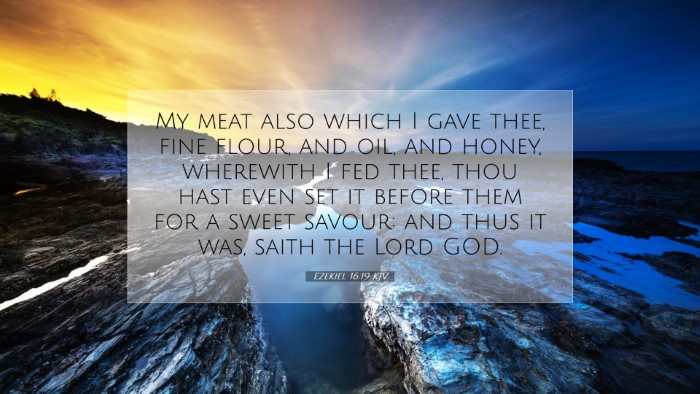Commentary on Ezekiel 16:19
Ezekiel 16:19 (KJV): "And my meat also which I gave thee, fine flour, and oil, and honey, wherewith I fed thee, thou hast even set it before them for a sweet savour: and thus it was, saith the Lord God."
Introduction
This verse is situated in one of the most profound sections of the Book of Ezekiel, wherein God uses the metaphor of an unfaithful wife to represent Jerusalem and its people. In contextualizing this specific verse, we gain insights from several theological scholars and public domain commentaries that illuminate the depth of God's indictment against His people and the gravity of their transgressions.
Contextual Background
The Book of Ezekiel is known for its vivid imagery and metaphorical language. Ezekiel, a prophet during the Babylonian exile, speaks to a people who have turned away from God, indulging in idolatry and spiritual infidelity. Chapter 16 presents a comprehensive allegory of God's covenant relationship with Israel, depicting His love and care juxtaposed against Israel's disloyalty.
Exegesis of the Verse
The Meal Offered by God: The mention of "my meat" refers to the sustenance and blessings that God provided to His people. Matthew Henry notes that fine flour, oil, and honey symbolize the abundance and richness of God’s provisions—culminating in a nourishing relationship designed to sustain Israel spiritually and physically.
Idolatry and Spiritual Adultery: In the latter part of the verse, we see that the blessings intended for the people’s good were misused and offered to false gods. Albert Barnes comments that this act of offering “what God had given them to the idols” signifies a gross betrayal of God’s trust and an egregious act of spiritual adultery. The metaphor of a wife offering her husband’s gifts to other lovers serves as a poignant illustration of Israel’s unfaithfulness.
Theological Implications
-
User of Divine Gifts:
Adam Clarke highlights that this betrayal is multifaceted, pointing to the reality that the people not only squandered God's gifts but also engaged in worship practices that were an affront to His holiness. The misuse of divine provisions indicates a lack of gratitude and recognition of God as the ultimate source of all blessings.
-
The Nature of Covenant Relationship:
The covenant relationship illustrated in this verse underscores the seriousness with which God views fidelity in worship. To take His gifts—intended for spiritual sustenance and to promote gratitude—and instead offer them to idols reveals a profound misunderstanding of their covenantal commitment.
-
God’s Grieved Heart:
The verse captures the emotional aspect of God’s relationship with His people. The gifts given were a manifestation of His ongoing love and desire for mutual communion. The rejection of these gifts portrays not only spiritual infidelity but also the anguish that God experiences in being forsaken by His beloved people.
Lessons for Today
This passage calls modern believers to reflect on their relationship with God and the manner in which they utilize His blessings. Just as Israel misappropriated the gifts from God, contemporary followers can easily find themselves taking divine provisions for granted or redirecting their worship towards worldly pursuits.
-
Gratitude:
It encourages believers to recognize the importance of gratitude as integral to their worship and relationship with God. Acknowledgment of God’s gifts should lead to a life characterized by thankfulness and devotion.
-
Faithfulness:
This verse challenges Christians to examine their allegiances and ensure that their worship is directed solely towards God. The tendency to idolize modern comforts, achievements, or relationships can serve as a diversion from true worship, paralleling Israel’s ancient pitfalls.
-
Recognition of God’s Provision:
Finally, it is a reminder that all good gifts come from God. As pastors and theologians reflect on this scripture, they are reminded to lead congregations in recognizing the divine source of their blessings and encourage them to use these gifts for His glory rather than self-serving idolatry.
Conclusion
Ezekiel 16:19 serves as a powerful reminder of the sacredness of the relationship between God and His people. As we study this verse with the input of esteemed scholars such as Matthew Henry, Albert Barnes, and Adam Clarke, we are drawn to a deeper understanding of the implications of our actions in relation to God's gifts. It urges on a continual commitment to faithfulness, an ongoing gratitude for God's provisions, and an intense examination of where our affections and worship lie. In doing so, we can avoid the same pitfalls that led Israel astray and foster a relationship with God that honors His love and provision.


